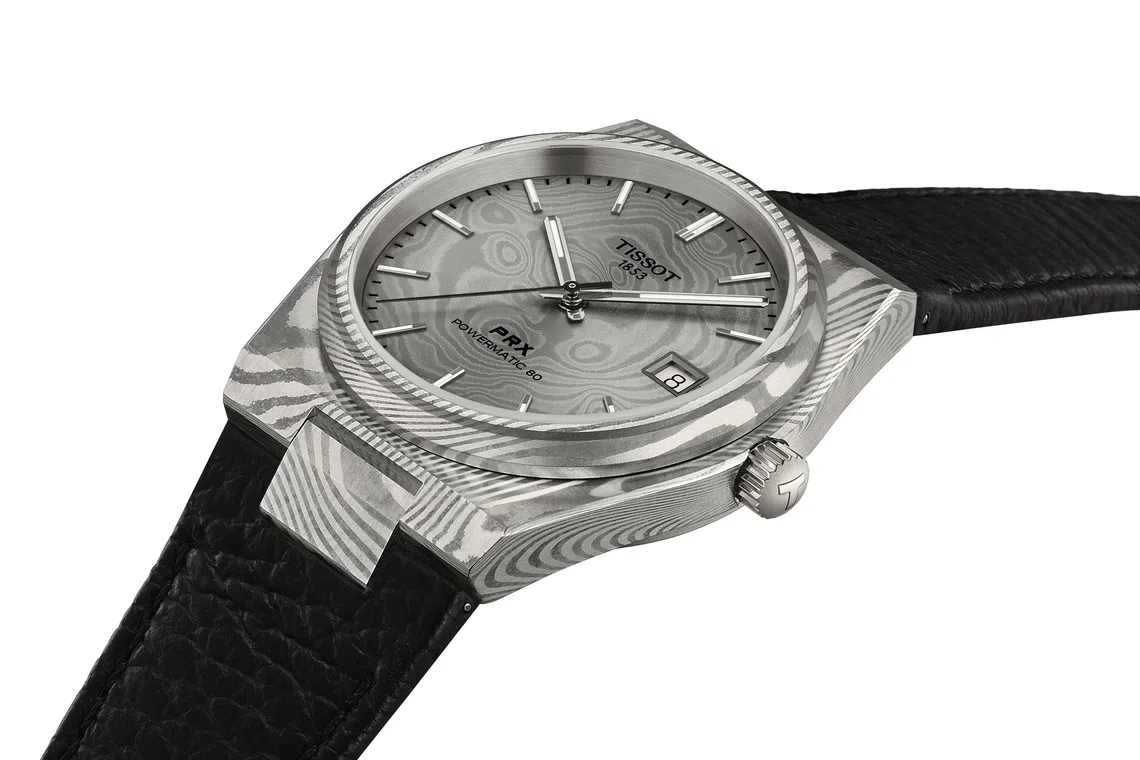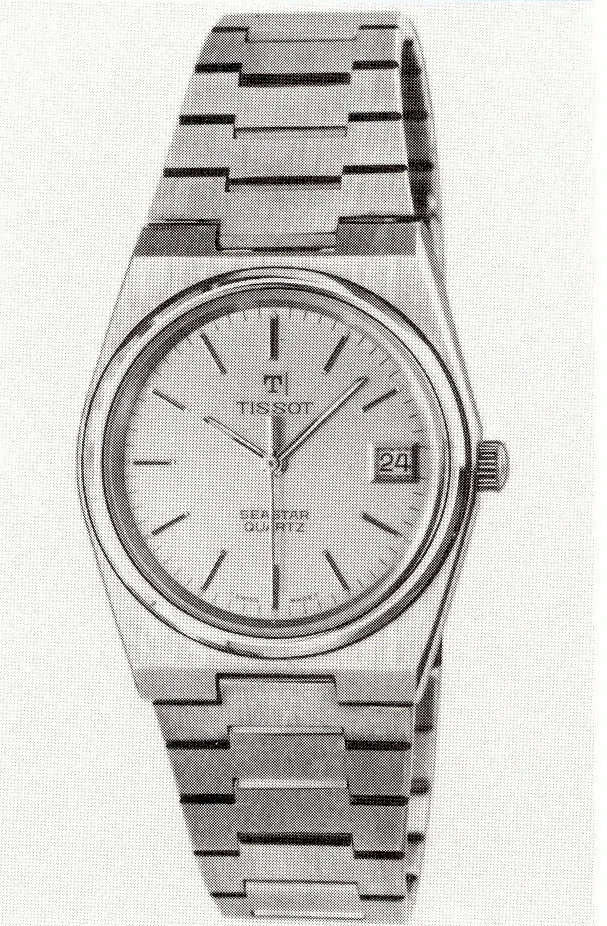Tissot introduces titanium and Damascus Steel to its PRX line
The collection’s revival continues with three new timepieces

TISSOT has unveiled three new 38 mm automatic editions of its classic PRX collection, emphasising innovation through two new material introductions.
First introduced in 1978, the PRX’s revival in recent years has seen various reiterations including different coloured dials, case materials and sizes, as well as quartz and mechanical versions.
The collection is once again expanded to include titanium for the first time in the line, as well as Damascus stainless steel.
Known for its angular geometry and integrated bracelet design, the collection’s name is actually an acronym for Precision, Robustness, and 10-bar water resistance.
The two titanium variants are designed for resilience and comfort. The material, prized for its exceptional strength, comprises the entire case and integrated bracelet. Its lightness ensures the watch sits easily on the wrist, making it an ideal companion for daily wear.
Both titanium models feature the distinctive waffle-patterned dial. The aesthetic choices are defined by a deep blue version contrasted with nickeled hands, and an anthracite iteration that nods to the metal itself, set against rose-gold-coloured hands and indexes for a contemporary look.
Navigate Asia in
a new global order
Get the insights delivered to your inbox.

Arguably, the most technically ambitious release is the single model fashioned entirely from Damascus stainless steel, a material that lends the watch both an artistic pedigree and unique character.
The last time Tissot went this bold with a material choice for the PRX’s case was when it introduced the watch in forged carbon in late 2024. Till today, this particular model remains highly sought-after with demand outstripping supply.

Historically revered for its layered strength in blades, Damascus stainless steel provides a high level of durability and artisanal prestige.
Both the case and the dial feature a mesmerising, one-of-a-kind pattern, characterised by swirling, watery motifs that catch the light and ensure that each piece is unique.
The design is structured with black-nickeled indexes and contrasting baton hands. Completing the unique presentation, the watch is fitted with an interchangeable grained leather strap featuring Damascus steel components.

The manufacturing of the Damascus steel components required Tissot to utilise modern metallurgical expertise. The process involves meticulously layering two grades of stainless-steel powder.
This foundation is subjected to hot isostatic pressing, an advanced industrial procedure that uses immense pressure – up to 1000 bar – and near-fusion temperatures. This process causes the powders to bond at the atomic level, yielding a dense block composed of 70 successive layers.
This resultant material is then precisely CNC-machined before receiving polished and satin finishes that highlight the interplay of light and shadow in the final pattern. This technical daring follows Tissot’s long history of material innovations, including the use of fibreglass in the Sideral from 1969 and synthetic materials in 1971’s Idea 2001.

Powering all the new 38 mm additions is the robust Powermatic 80 movement, which is capable of an impressive 80-hour power reserve.
Performance under various conditions is guaranteed by the incorporation of the Nivachron balance spring, an engineering element designed to resist magnetic interference, shocks, and temperature variations.
Decoding Asia newsletter: your guide to navigating Asia in a new global order. Sign up here to get Decoding Asia newsletter. Delivered to your inbox. Free.
Copyright SPH Media. All rights reserved.

